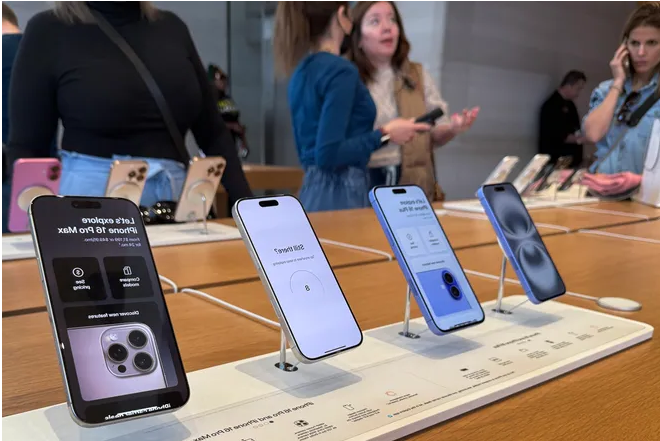
Could U.S.-Made iPhones Really Cost $3,500 Under Trump’s Plan?
iPhones have always been pricey, but new tariff threats and mounting pressure from former President Donald Trump to bring iPhone production to the U.S. could push prices even higher, experts warn.
“I have long ago informed Tim Cook of Apple that I expect their iPhones sold in the United States to be manufactured here—not in India or anywhere else. If not, Apple must pay a tariff of at least 25%,” Trump wrote in a May 23 post on social media.
How Much Could iPhones Cost?
Experts are divided on how significant the price jump could be. Dan Ives, global head of tech research at Wedbush Securities, estimates that tariffs alone could increase iPhone prices to around $2,300—up from the current $1,199 for Apple’s latest model. If production were fully relocated to the U.S., Ives says, that number could climb as high as $3,500 per unit.
Drew DeLong, head of the Geopolitical Dynamics Practice at Kearney, believes a more modest increase of $100–$200 is likely if tariffs are implemented. DeLong also noted that Apple may be more concerned about an ongoing U.S. investigation into semiconductor imports, which could impact critical components used in iPhone manufacturing.
“If I were in Apple’s position, I’d be less worried about reciprocal tariffs and more about the semiconductor probe,” DeLong said.
Can Apple Realistically Shift iPhone Production to the U.S.?
Ives is skeptical. He called the idea of iPhones made in America “a fairy tale,” citing the enormous costs and logistical challenges of moving Apple’s complex global supply chain. He estimates it would take at least 5 to 10 years to make such a shift feasible.
Despite Apple’s pledge to invest $500 billion in the U.S. over four years, Ives noted that most of the investment is focused on AI initiatives, not manufacturing
“There’s no realistic chance iPhone production begins in the U.S. anytime soon,” Ives wrote in a research note
DeLong, however, believes Apple could scale up U.S. manufacturing faster than expected. He referenced Apple’s upcoming server facility in Houston—slated to open in 2026—as an example of what could be achieved under political pressure.
“From what I hear, the administration wants these projects built within the next four years,” he added.
During Trump’s first term, he claimed Apple CEO Tim Cook promised to build three factories in the U.S., but none were completed. At that time, Apple was granted tariff exemptions but did not manufacture any iPhones domestically.
Could Trump Target Apple Directly?
In April, the Trump administration clarified tariff policies through a presidential memo that granted smartphone tariff exemptions. However, Trump could reverse those exemptions, forcing Apple to pay more on imports—particularly those from India, where the company plans to move most U.S.-bound production by the end of 2025.
Nikolas Guggenberger, a law professor at the University of Houston, emphasized that Trump’s Truth Social posts don’t constitute formal policy—but they do signal intent.
“These announcements are more like public speeches. Formal policy still requires going through legal channels,” Guggenberger said.
If Trump sought to directly impact Apple, Guggenberger noted, the most straightforward path would be to remove tariff exemptions or apply new tariffs specifically to smartphones manufactured in India
Apple declined to comment on the matter.